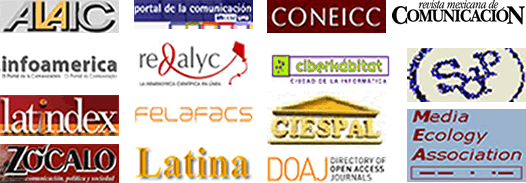Inicio
OBAMA’S MASTERY OF RHETORIC AND MODERN MEDIA
Por: Joseph Duggan
Número 65
Now, if anyone desires to call that philosopher, who instructs us fully in things and words an orator, he may do so without opposition from me; or if he prefer to call that orator, of whom I speak as having wisdom united with eloquence, a philosopher, I shall make no objection, provided it be allowed that neither his inability to speak, who understands his subject but cannot set it forth in words, nor his ignorance, to whom matter is wanting though words abound, can merit commendation; and if I had to choose one of the two, I should prefer ineloquent good sense to loquacious folly. But if it be inquired which is the more eminent excellence, the palm is to be given to the learned orator….
-- Cicero, De Oratore, Book III, Chapter 35
Rhetoric, in the Ciceronian sense as an art, a discipline, a virtue, the happy marriage of style and substance, still matters. Rhetoric is not, as some moderns denigrate it, a tactic or a gimmick. It is leadership as a habit of being. Rhetorical mastery is why Barack Obama is the president-elect.
Obama is The One, but is he the New Great Communicator?
Well, I knew Ronald Reagan, and Barack Obama is no Ronald Reagan. But Obama is a better rhetorician than any President or any other major presidential candidate since Reagan.
Neither is Obama the reincarnation of Abraham Lincoln, but in character he resembles Lincoln more than Reagan. Like Lincoln, Obama is a lanky, ambitious, eloquent, personable, intellectually interesting lawyer who after just a few years in the Illinois legislature in Springfield had come to believe he possessed a special calling to heal the Union. The drinking water from the Sangamon River must be spiked with chutzpah. With Lincoln, Obama shares the now-rare capacity to think and speak at the same time, and to speak extemporaneously in full sentences and paragraphs.
Obama, like Reagan, is highly effective on the video screen. Reagan mastered this during the oligopoly of network broadcast TV. He projected his persona soothingly through what Marshall McLuhan insightfully called the "cool" medium of TV. Reagan made himself a welcome, avuncular guest in America's living rooms.
Obama likewise has a "cool," nonthreatening persona on the video screen. Today the transmission increasingly is not broadcast TV but YouTube video on demand. YouTube obsolesces sound bites. YouTube retrieves and enhances the political art form of the long speech with a beginning, middle and end, and with sweep of narrative and thought. Obama used this form very effectively in his Philadelphia speech, his so-called “conversation about race.” Before his largest audiences, live and on television, his victory speech in Grant Park was artful and dignified.
Reagan performed sound bites brilliantly, but he also pushed back more effectively than any of his contemporaries against the constraints of sound bites. This won him air time to deliver important full-length speeches to the national TV audience. Obama, with his pre-election infomercial, again was Reaganesque – offering a 21st century retrieval of some of that old-shoe comfortability of Ronnie hosting “General Electric Theater.”
Like Reagan on the Right, the left-winger Obama is effective in appealing to many Americans who are uncommitted, and disarming some who are opposed, to his specific political agenda. Both politicians were geniuses at “connecting.” Both men appealed to young people who, like Miranda in the Tempest, have not yet tasted the disappointments of citizenship in the real world.
When people perceive Obama and are attracted, they respond to what McLuhan, after Gestalt terminology, called the dynamics of figure versus ground. People are affected not only by Obama as a figure but also, and perhaps the more powerfully because less consciously, by the environment within which he stands.
In the Democratic primaries, the red-hot Clintons were foils to his cool. For the general election, John McCain provided an even more incendiary contrast. The total environment of the fall campaign for Obama as reassuring figure was an angry and dispirited population deeply unhappy with the incumbent President and Administration, a shambles of what used to be an effective Republican Party organization, and a Republican nominee every bit as erratic as the Democrats’ campaign alleged him to be.
Obama even managed to stand out appealingly as an elegant and self-contained figure against the “ground” of his buffoonish running-at-the-mouth-mate, Joe Biden. Whenever a Biden gaffe descended to the level of requiring a correction, Obama gave himself a presidential aura as he called his subordinate onto the carpet.
I am a Reagan conservative who was never enamored of John McCain. But I knew, as everyone should have known, that despite Obama’s soothing persona and impressive intellect the Illinois senator held such extreme positions favoring abortion and tending toward socialism that I could never vote for him. So I voted for McCain, gave funds to his campaign, and canvassed neighborhoods to try to help him win the election.
With Cicero, I preferred on certain non-negotiable issues McCain’s experience and “ineloquent good sense” to Biden’s “loquacious folly.” But Biden wasn’t at the top of the ticket. The majority chose Obama, who has attributes of the learned orator.
I am very hesitant about where Obama will lead us. But lead us he will. Despite grievous differences on vital issues, I sense he has the skills of a real rhetorician.
Joseph Duggan
Is a former speechwriter for President George H.W. Bush and a former aide to Ambassadors Jeane Kirkpatrick and Edward Rowny. He has a master’s degree in statecraft and world politics from the Institute of World Politics, Washington; and a bachelor of arts degree in classical languages and literature from the University of Dallas.
|


